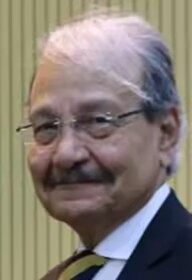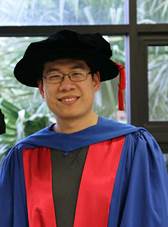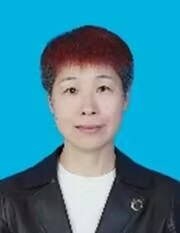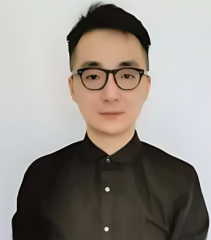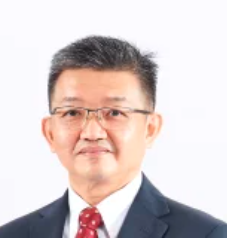
Prof. Chengwei Yang
Beijing Institute of Technology, China
Chengwei Yang is a professor, doctoral supervisor and Dean Assistant of the School of Mechatronical Engineering of Beijing Institute of Technology. He was jointly trained by Chinese Academy of Sciences and McGill University of Canada during his doctoral degree. His main research area is swarm Intelligent unmanned systems. He has published more than 30 academic papers, been authorized 12 patents, completed 2 scientific and technological achievements, and published 1 academic monograph. Now he is the member of the Swarm Intelligence and Collaborative Control Professional Committee of the China Command and Control Society and a standing member of the Youth Work Committee. He is also a reviewer of the National Natural Science Foundation and has participated in the demonstration work of several national major key projects. He presides over a number of National Natural Science Fund projects, national special major sub-projects, pre-research projects and some other fund projects.

Prof. Hongwei Mo
Harbin Engineering University, China
Mo Hongwei is a professor, doctoral supervisor, and director of the Brain-inspired Computing and Artificial Intelligence Research Center at the School of Intelligent Science and Engineering, Harbin Engineering University. Director of Heilongjiang Provincial Key Laboratory of Multidisciplinary Cognitive Cognitive Artificial Intelligence Technology and Application. Deputy Director of the Natural Computing and Digital Intelligence City Special Committee of the Chinese Artificial Intelligence Society, Standing Committee Member of the Aerospace Intelligence System Special Committee of the Chinese Artificial Intelligence Society, and member of the Intelligence Medical Special Committee of the Chinese Artificial Intelligence Society. Expert Committee of Brain-like Computing of Chinese Society of Neuroscience. He undertook and completed 26 projects of the National Natural Science Foundation of China, the National Defense Pre-research, the New Generation Artificial Intelligence 2030 Major Project of the Ministry of Science and Technology, and the Heilongjiang Provincial Key R&D Program Artificial Intelligence Special Project, published more than 90 papers, and published 6 monographs, "Artificial Intelligence". 4 textbooks including "Introduction", and 10 authorized invention patents. Received 4 provincial and ministerial level science and technology awards. Author of Outstanding Papers in "Journal of Intelligent Systems" in 2021. He is the co-chair of the 2013 International Conference on Swarm Intelligence, the co-chair of the 2017 International Conference on Biologically Inspired Computation Theory and Applications (BICTA2017), and the chairman of the organizing committees and program committee members of more than 40 international conferences. He is on the editorial board of many international and domestic journals such as Chinese Journal of Electronics.

Assoc. Prof. Xinming Zhang
Harbin Institute of Technology, China
Zhang Xinming, associate professor, doctoral supervisor. In September 2006, he obtained a PhD in Science and Technology of Harbin Institute of Technology. 2006.10-2008.10 was engaged in post-doctoral research at Harbin Institute of Technology Shenzhen Graduate School, and has joined Harbin Institute of Technology (Shenzhen) to this day in 2008.10. 2016.8-2017.8 as a visiting scholar at Michigan State University (Michigan State University). As a host, 7 items of scientific research projects, including the National Natural Science Foundation (Youth Fund), Chinese Postdoctoral Fund, Guangdong Natural Science Foundation Scientific research projects, as the main participants participating in the four scientific research projects, including the National Natural Science Foundation of China, have published more than 50 related papers in important academic journals at home and abroad, including more than 30 SCI retrieval.

Assoc. Prof. Lei Zhang
Tianjin University, China
Lei Zhang received her Ph.D. degree in Computer Science from Auburn University (Auburn, AL, USA) in 2008. She worked as an assistant professor from 2008-2011 in the Computer Science Dept. at Frostburg State University (Frostburg, MD, USA); She is now an associate professor in College of Intelligence and Computing at Tianjin University (Tianjin, P.R. China), where she is a member of Tianjin Key Laboratory of Advanced Network Technology and Application. Her research interests include mobile computing, computer networks, data mining. She is a member of the ACM and IEEE.

Assoc. Prof.Jing Teng
North China Electric Power University,China
Jing TENG is an associate professor, director of the Artificial Intelligence and Internet of Things Teaching and Research Center at the School of Control and Computer Engineering, North China Electric Power University. She is an IEEE Senior member and Expert Committee of Hybrid Artificial Intelligence of Chinese Association of Automation. She undertook and completed 12 projects of the National Natural Science Foundation of China, the National Defense Pre-research, the National Key R&D Plan Foundation of China, the Ministry of Education of the People's Republic of China, and the Fundamental Research Funds for the Central Universities, published more than 50 papers, and 10 authorized invention patents. She received 2 ministerial higher education awards. She is the Program Committee member of Australasian Joint Conference on Artificial Intelligence (AJCAI) 2022. She is the reviewer of many international and domestic journals, including IEEE Transactions on Information Theory, IEEE Transactions on Industrial Electronics, IEEE Transactions on Signal Processing, IEEE Transactions on Mobile Computing, IEEE Transactions on Vehicular Technology, IEEE Transactions on Parallel and Distributed Systems, ACTA AUTOMATICA SINICA.

Assoc. Prof. Shuang Lai
Northwestern Polytechnical University, China
Shuang Lai received his Ph.D. in Control Science and Engineering from Northwestern Polytechnical University in 2009 and was a visiting scholar at the University of Technology Sydney, Australia. He is currently an associate professor at the School of Public Policy and Administration, Northwestern Polytechnical University. He has presided over and participated in several national, provincial, and ministerial scientific research projects, and has published many academic papers in domestic and foreign academic conferences and various journals. His main research interests are network information security, e-commerce, e-government, and emergency management. He is dedicated to applying computer-related technologies to the field of public administration.

Zhuowei Wang
University of Technology Sydney, Australia
Dr Zhuowei Wang is with the Australian Artificial Intelligence Institute (AAII), Faculty of Engineering and Information Technology, University of Technology Sydney. He received his Ph.D. degree in Computer Science from University of Technology Sydney (2018-2022) and his bachelor's degree from South China University of Technology (2013-2017). His research interest focuses on noisy label learning, federated learning, and weakly supervised learning. He has served as Editorial Manage of Expert Systems with Applications and Technical Committee of BDAI and WSPML. He has served as a member of program committees of CVPR, ICML, ECCV, and KDD.
More speakers will be added soon...

